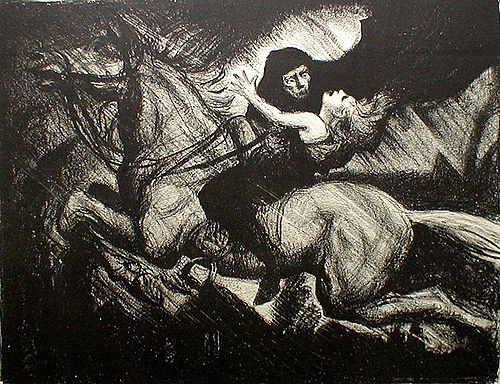Elfnoun
(Norse mythology) A luminous spirit presiding over nature and fertility and dwelling in the world of Álfheim (Elfland). Compare angel, nymph, fairy.
Elfnoun
Any from a race of mythical, supernatural beings resembling but seen as distinct from human beings. They are usually delicate-featured and skilled in magic or spellcrafting; sometimes depicted as clashing with dwarves, especially in modern fantasy literature.
Elfnoun
(fantasy) Any of the magical, typically forest-guarding races bearing some similarities to the Norse álfar (through Tolkien's Eldar).
Elfnoun
A very diminutive person; a dwarf.
Elfverb
To twist into elflocks (of hair); to mat.
Elfnoun
An imaginary supernatural being, commonly a little sprite, much like a fairy; a mythological diminutive spirit, supposed to haunt hills and wild places, and generally represented as delighting in mischievous tricks.
Elfnoun
A very diminutive person; a dwarf.
Elfverb
To entangle mischievously, as an elf might do.
Elfnoun
(folklore) fairies that are somewhat mischievous
Elfnoun
below 3 kilohertz
Elf
An elf (plural: elves) is a type of humanoid supernatural being in Germanic mythology and folklore (especially North Germanic mythology and folklore). In medieval Germanic-speaking cultures, elves generally seem to have been thought of as beings with magical powers and supernatural beauty, ambivalent towards everyday people and capable of either helping or hindering them.
Gnomenoun
A brief reflection or maxim; a pithy saying.
Gnomenoun
An elemental (spirit or corporeal creature associated with a classical element) associated with earth.
Gnomenoun
One of a legendary race of human-like beings, usually imagined as short and possibly bearded males, who inhabit the inner parts of the earth and act as guardians of mines, mineral treasure, etc.; in modern fantasy literature, when distinguished from dwarves, gnomes are usually even smaller than dwarves and more focussed on engineering than mining.
Gnomenoun
A dwarf; a goblin; a person of small stature or misshapen features, or of strange appearance.
Gnomenoun
The northern pygmy owl, Glaucidium gnoma, a small owl of the western United States.
Gnomenoun
A small statue of a dwarf-like character, often bearded, placed in a garden.
Gnomenoun
An upper atmospheric optical phenomenon associated with thunderstorms, a compact blue starter.
Gnomenoun
A banker, especially a secretive international one.
Gnomenoun
An imaginary being, supposed by the Rosicrucians to inhabit the inner parts of the earth, and to be the guardian of mines, quarries, etc.
Gnomenoun
A dwarf; a goblin; a person of small stature or misshapen features, or of strange appearance.
Gnomenoun
A small owl (Glaucidium gnoma) of the Western United States.
Gnomenoun
A brief reflection or maxim.
Gnomenoun
a legendary creature resembling a tiny old man; lives in the depths of the earth and guards buried treasure
Gnomenoun
a short pithy saying expressing a general truth
Gnome
A gnome is a mythological creature and diminutive spirit in Renaissance magic and alchemy, first introduced by Paracelsus in the 16th century and later adopted by more recent authors including those of modern fantasy literature. Its characteristics have been reinterpreted to suit the needs of various story tellers, but it is typically said to be a small humanoid that lives underground.Diminutive statues of gnomes introduced as lawn ornaments during the 19th century grew in popularity during the 20th century and came to be known as garden gnomes.





















